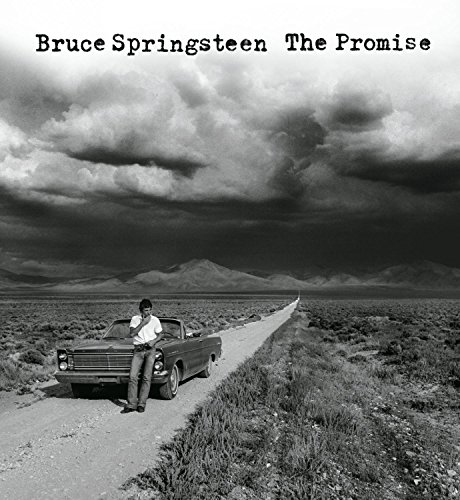
Bruce Springsteen
The Promise
Release Date: Nov 16, 2010
Genre(s): Singer/Songwriter, Pop/Rock, Contemporary Pop/Rock, Album Rock, Rock & Roll, Heartland Rock
Record label: Columbia
Music Critic Score
How the Music Critic Score works
Buy The Promise from Amazon
Album Review: The Promise by Bruce Springsteen
Exceptionally Good, Based on 8 Critics
Based on rating 5/5
It was while dodging explosions of hype and litigation that Bruce Springsteen made the decision to pare his 1978 album Darkness on the Edge of Town back to 10 songs focusing on a mood of sombre reflection. The ambition was to make his audience view him in a different light: as a man of conscience rather than a mere purveyor of exuberant revivalist rock'n' roll, the guise in which he had made his appearance earlier in the decade. "I wanted to deal in reality," he said recently, thinking back to a time when he was grappling with the troublesome implications of his new celebrity, "and I wanted to start a conversation about that.
Based on rating 9.2/10
The poignant first strike of the piano on “Racing in the Street” immediately made my hands and shoulders tense. It was the same involuntary reaction I get when I notice the faint call of a train whistle in the distance—that quiet anticipation for the beast of a machine climbing over the hill, a surging cacophony that will soon surround me like the smoke pouring from its innards. The joy of The Promise: The Lost Sessions of Darkness on the Edge of Town for any serious Boss employee is the notable twinkle of notions that would later grow into classic rock staples.
Based on rating 8.5/10
Sometimes reissues add a few demos or outtakes, sometimes they add a bonus disc with a live show or additional music, and sometimes they go so far with the bonus material they become something else entirely. The Promise, a name given to two sets based around unheard music from Bruce Springsteen dating to 1977 and 1978, when he was writing and recording the seminal Darkness on the Edge of Town, doesn't fit easily into typical reissue categories. There's a 2xCD, 3xLP set that contains 22 unreleased songs from the period, and then there's a deluxe box set that augments the unreleased material with a remastered version of Darkness and three DVDs.
Based on rating 4/5
I’ve always felt a little uneasy about Bruce Springsteen. There just seemed to be too much work getting in the way of his music. There’s the whole New Jersey thing, and all that blue-collar romanticism, and the trading-card personalities of his band, and the mythic characters in his songs, and the four-hour long concerts, and the massive box sets, and the blinding star power of Springsteen himself.
Based on rating 8/10
Thirty-two years on from the release of Bruce Springsteen's Darkness on the Edge of Town, his resurgent cred with the alternative crowd is rooted not in that record, but rather Nebraska and The Ghost of Tom Joad, his two exceptionally stark acoustic records chronicling the decline of the American working classes post-Vietnam. In fact there are plenty who maintain that Nebraska is his only good record. Which is funny, because some of those people probably worked for NME in 1978, the year the then punk obsessed mag made Darkness...
Based on rating 4/5
In the three years between the knockout success of Born To Run and Darkness On The Edge Of Town, Bruce Springsteen was unable to go into the studio due to management issues but was still writing songs at an enviable rate. The songs that didn't make Darkness make up this collection. [rssbreak] Some will be familiar. There's a version of Racing In The Street with different lyrics, as well as Because The Night and Fire, which were made famous by Patti Smith and the Pointer Sisters respectively.
Based on rating 7/10
The Wiz-bang Gang. Shut down strangers. Hot rod angels. Madman drummers. Bummers. Indians in the summer. Springsteen’s songs have no shortage of castaways, outliers, vagrants, people on the run. But most of the time these wanderers are banded together in loosely assembled groups, given punchy ….
Opinion: Absolutly essential
An indispensible portrait of an artist at the top of his game. Alex Denney 2010 In 1978 Bruce Springsteen was being written off as a busted flush; the product of major-label promotional muscle incapable of making good on his considerable hype. With Born to Run’s star-making turn nearly three years distant at a time when such absences were all but unthinkable, Springsteen fell victim to his own success as the "future of rock ‘n’ roll", a label he quickly grew to hate.
'The Promise'
is available now

